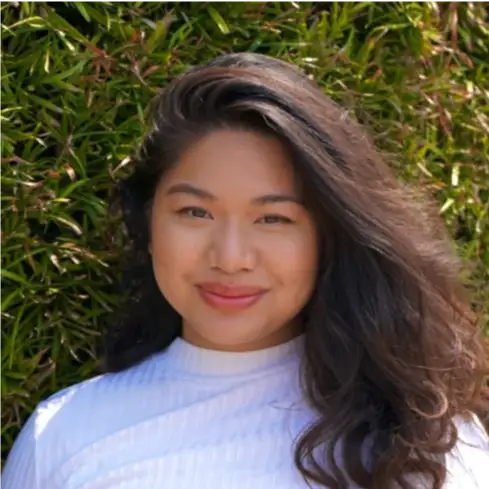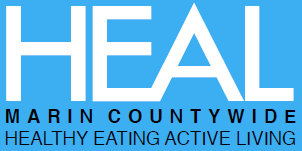The winter season is upon us, bringing with it much needed rain and heralding a new season of growth and change. We are excited looking back at the past year, and the progress achieved through the MarinHEAL Collaborative and the Community Action Teams (CATs), while looking toward the future, and working with the MarinHeal Collaborative and our partners to lay the groundwork for the next phase of our work.
This past year, the Community Action Teams, Alcohol Justice (Canal), Marin County Cooperation Team (Marin City) and West Marin Community Services/San Geronimo Valley Community Center (West Marin) were hard at work. They implemented diverse and creative community engagement strategies that brought together residents, and community and county organizations, to discuss, debate, and create equitable food system priorities (EFS) uniquely reflective of each community’s assets and needs.
As described below, each of the MarinHEAL CATs employed in-person, print, or virtual outreach strategies, community gatherings, and meetings to reach over 1,500 residents across the three communities and document community voice. The resulting selected priorities – increased local food production, food and production related employment opportunities, and creating a pathway to train the next generation of youth leaders – have common recurring themes across the three communities.
We are happy to report the MarinHEAL Collaborative has secured funding from the County of Marin to begin implementing community selected EFS priorities.
In December, the MarinHEAL Steering Committee held a retreat to advance our commitment and partnership in working together to implement the MarinHEAL vision and goals. The Committee is in transition with current committee members ceding their seats or nearing the end of their terms, and recruitment for new membership currently underway. The Committee is placing special emphasis on recruiting leadership for the Evaluation and Communication subcommittees. If you have a passion for equitable food systems and community leadership, we invite you to fill out an application and join our team.
Finally, the Nutrition Wellness Program is working closely with the County’s Epidemiology and Measurement, Learning and Evaluation (MLE) Departments to create equity inclusive measurement tools to monitor our progress, help us build on our successes, and address our challenges. Over the coming year, we will continue to work closely with the Steering Committee and the MarinHEAL CATs to create evaluation tools and metrics best suited to each community’s selected priorities
Elaini Negussie
County Co-Chair
Community Health and Prevention Unit
Nutrition Wellness Program Manager
Andy Naja-Riese
Community Co-Chair Agricultural Institute of Marin
Chief Executive Officer
Nutrition Wellness Program: Intern Spotlight

Denicka Posadas was raised in the Philippines before relocating to the Bayshore community of Daly City, in the San Francisco Bay Area. This transition significantly impacted her life and career decisions. In her personal and professional life, she has witnessed how different cities affect people’s livelihoods, and appreciates the beauty of being in a service role. She is open to the perspectives of others and strives to develop policies and procedures that support the individualized needs of communities.
Denicka attended San Francisco State University, to acquire a degree in Urban Studies and Planning, where she continued her learning on the impacts of poverty and the built environment. Currently, she is working towards a master’s degree in public health, focusing on Community and Public Health Practices.
As an Intern for the Nutrition Wellness Program, Denicka created a Community Asset Map for Marin City and the Canal, in addition to compiling resources for the communities of West Marin. During her 8-month internship in this role, she participated in conversations with NWP staff, community stakeholders, and attended the HEAL Community Action Team meetings to further understand the food landscape and existing resources located within these communities.
Her research focused on current community assets, new partners or organizations, whether identified assets include key features such as commercial kitchens, joint use agreements, community gardens, and much more. In addition, Denicka compiled examples of best practices and experiences from other organizations and initiatives centered on creating just and equitable food systems.
Upcoming Events: Training and Technical Assistance
Healthy Eating Research Round 14 Grants – Concept Papers Due by April 3, 2024
This CFP aims to fund research on supportive family policies and programs that have strong potential to impact equitable access to nutritious food in communities, nutrition security, diet quality, and improved nutrition and health outcomes. We are especially interested in strategies to improve health outcomes for families with lower incomes and/or racially and ethnically diverse populations experiencing higher rates of diet-related chronic disease and/or health disparities. Findings will be used to guide and inform decision making about policy and system changes that can advance nutrition equity and improve health.
Download the full Call For Proposals at: https://healthyeatingresearch.org.
Now Accepting Applications for the 2023-24 CA Farm to School Incubator Grant Program
The California Department of Food and Agriculture Office of Farm to Fork (CDFA-F2F) is accepting applications for the 2023-24 California Farm to School Incubator Grant Program, until 5 p.m. PDT April 4, 2024. The program will award competitive grants to support projects that cultivate equity, nurture students, build climate resilience, and create scalable and sustainable change.
Visit the California Farm to School Incubator Grant Program webpage to view the formal request for applications at: https://www.cdfa.ca.gov/caf2sgrant/.
